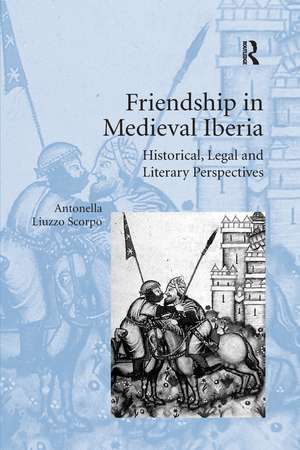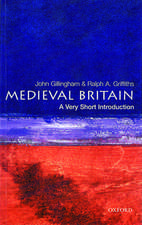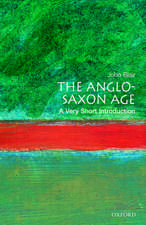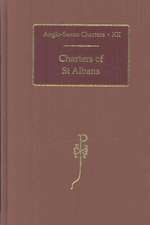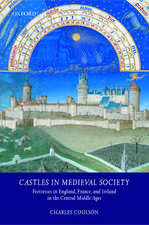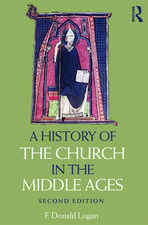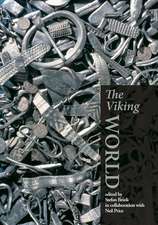Friendship in Medieval Iberia: Historical, Legal and Literary Perspectives
Autor Antonella Liuzzo Scorpoen Limba Engleză Paperback – 30 sep 2020
| Toate formatele și edițiile | Preț | Express |
|---|---|---|
| Paperback (1) | 386.00 lei 43-57 zile | |
| Taylor & Francis – 30 sep 2020 | 386.00 lei 43-57 zile | |
| Hardback (1) | 1114.70 lei 43-57 zile | |
| Taylor & Francis – 28 oct 2014 | 1114.70 lei 43-57 zile |
Preț: 386.00 lei
Nou
Puncte Express: 579
Preț estimativ în valută:
73.87€ • 76.68$ • 61.60£
73.87€ • 76.68$ • 61.60£
Carte tipărită la comandă
Livrare economică 24 martie-07 aprilie
Preluare comenzi: 021 569.72.76
Specificații
ISBN-13: 9780367669157
ISBN-10: 0367669153
Pagini: 258
Dimensiuni: 156 x 234 x 14 mm
Greutate: 0.37 kg
Ediția:1
Editura: Taylor & Francis
Colecția Routledge
Locul publicării:Oxford, United Kingdom
ISBN-10: 0367669153
Pagini: 258
Dimensiuni: 156 x 234 x 14 mm
Greutate: 0.37 kg
Ediția:1
Editura: Taylor & Francis
Colecția Routledge
Locul publicării:Oxford, United Kingdom
Cuprins
Friendship in Medieval Iberia
Notă biografică
Antonella Liuzzo Scorpo completed her first degree in European Languages and Cultures at the University of Catania (Italy), before undertaking doctoral research at the University of Exeter. She worked at the University of Exeter and as a Lecturer in Medieval History at Queen Mary University of London, before joining the University of Lincoln in 2013. She is interested in the legal, cultural and political history of the medieval Western Mediterranean, and in particular in thirteenth-century Iberia. Her main areas of research include the history of emotions, social implications of inter-faith collaborations and political agreements, as well as the connections between friendship and gender relationships. She has also published on ideas and representations of power in medieval Castile and Leon. She has also been actively involved in international research projects with other European Institutions.
Descriere
This book contributes to the study of the history of emotions and cultural histories of the Middle Ages, while also adding another crucial piece to the broader historiographical debate currently challenging the most traditional view of the Iberian Peninsula’s ’exceptionalism’. This interdisciplinary study considers whether Iberia should be rather c
